Ever notice that in the springtime you may feel a little “off,” sluggish or fatigued, less hungry, or even sense a subtle “flow” in your system?
All good! It’s spring, and your body knows it. According to timeless Ayurvedic wisdom, these feelings mark a predictable seasonal shift that is nature’s version of “spring cleaning.”
Ayurveda describes that “ama,” or impurities deep in our bodies begin to loosen and “flow” out at this time of year, not unlike the mountain snow, melting and trickling down towards the plains.

Best of all, we can take advantage of this innate cycle by adjusting our diet and lifestyle during this time, to support maximal detox, with the added benefit of strengthening immunity.
How Our Genes Express Themselves Seasonally
This is more than simply an interesting idea. A landmark study published in Nature Communications validates that our genes themselves change expression depending on the season: over 5,000 genes—nearly 25 percent of those tested—vary seasonally.

As a result, for example, inflammatory tendencies are greater in the winter, while immunity is stronger in the summer. Predictions are that COVID-19 will recede during the summer, and enhanced immunity may play a role. Ever notice how you rarely catch a cold or flu in July? Hopefully, this year will be no exception! (See 6 easy tips below to shore up your detox and immune systems.)
Initial studies hint that genes responsible for detoxification and elimination vary seasonally, and further research will likely validate this aspect of Ayurvedic “wisdom of the seasons,” as well.
So, what should you do now in light of this fascinating and important fact of your seismic seasonal genomic shift? Take advantage of it!
Watch Dr. Nancy’s video Head Up: Your Genes Are Changing!
6 Quick Tips to Detox Now!
Here are your Quick Detox Tips* for 2020. Do them now while your detox genes are up and ready. Six weeks is ideal, but even a week or two will make a big difference. After all, Spring has sprung!
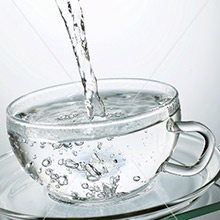
1. Drink half a cup of boiled, warm/hot spring water every hour until 6:00 p.m.
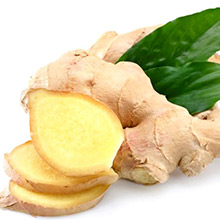
2. Add fresh ginger root to your daily diet. A thin slice with a dash of rock salt and lemon before each meal will stoke your detox fire.

3. Avoid or reduce cheese, yogurt (except as lassi, a fresh yogurt drink; see recipe below), cold drinks and foods like ice cream and other frozen desserts, red meat, chocolate, sugar, and alcohol.
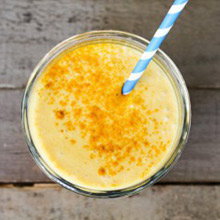
4. Include these detox enhancers in your daily diet, ideally in each meal:
• turmeric powder, an amazing detox enhancer
• coriander, which supports liver detox enzymes
• hot water
• fresh probiotic sources, such as homemade lassi or kefir
• fresh, steamed or sautéed greens, such as chard, kale, dandelion, mustard
5. Follow your body’s inclination for more rest, which itself aids detox. Go to bed early and be regular in your meditation practice. I recommend the Transcendental Meditation® (TM) technique due to the deep, rejuvenating rest it gives to mind and body both. In addition, it nourishes the root of all spiritual development and traditions, our own pure consciousness.

6. Remember to stay safe—socially distance and wear your mask! Yet, also spend time outdoors, on favorite hobbies, and give yourself permission to laze around now and then. This will help mellow out any emotional detox, which also ramps up in the spring.
Mother Nature provides another built-in remedy for spring moodiness, with research showing the more time spent outdoors in the Spring sunshine, the better the mood!
Final reminders: get outdoors, take ample screen breaks, “short” the news, and enjoy this salubrious season with a naturally purified, strong and uplifted body, mind, and spirit!
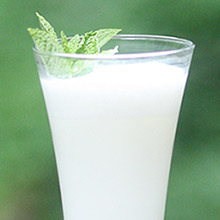 Detox and Digestive Lassi
Detox and Digestive Lassi
- 1/2 cup of fresh, plain nonfat yogurt (ideally made fresh at home the night before)
- 1 cup of water
- 1 pinch of rock salt
- 1 pinch of black pepper
- 1 pinch of cumin powder (lightly toasted in a dry pan on the stove is ideal)
- mint leaves or cilantro, finely chopped
- Blend all ingredients, and drink with your meal.
Check out my favorite detox herbals here: Choose up to three herbal supplements to take this month to support your body’s elimination of toxins and deep, inner “spring refresh.” (As always, check with your doctor before beginning any new diet or supplements, especially if you take medication or have a medical condition.)
*If you have a health condition or take medication, please consult your physician before adopting any new dietary recommendations. Although unlikely, if any discomfort occurs, stop the above recommendations.
To schedule an Integrative Ayurveda “Comprehensive Wellness Transformation” or consultation by phone or teleconference, please contact Dr. Lonsdorf’s office at 641-469-3174 or healthoffice@drlonsdorf.com.
- Dopico, X., Evangelou, M., Ferreira, R. et al.Widespread seasonal gene expression reveals annual differences in human immunity and physiology. Nat Commun6, 7000 (2015). https://doi.org/10.1038/ncomms8000
- Gunderson MP, Nguyen BT, Cervantes Reyes JC, et al. Response of phase I and II detoxification enzymes, glutathione, metallothionein and acetylcholine esterase to mercury and dimethoate in signal crayfish (Pacifastacus leniusculus). Chemosphere. 2018 Oct;208:749-756. DOI: 10.1016/j.chemosphere.2018.05.183.






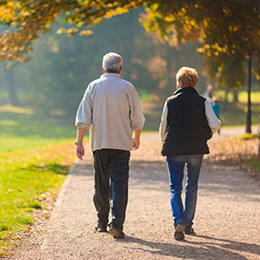



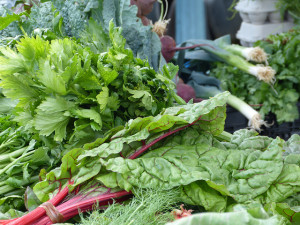 lemon before the meal will stoke your detox fire.
lemon before the meal will stoke your detox fire.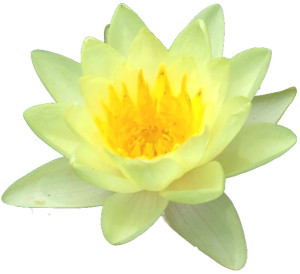
Recent Comments